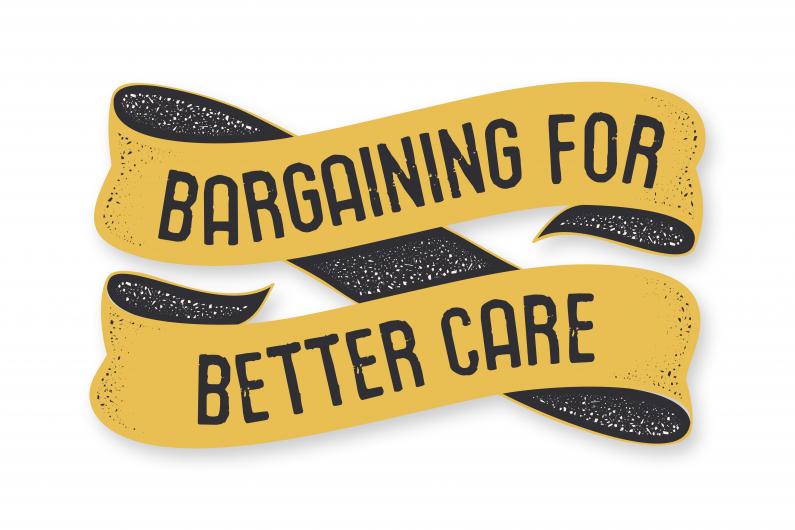
A second week of negotiations between the multi-union Facilities Bargaining Association (FBA) and the Health Employers Association of BC (HEABC) included negotiations on a number of non-monetary and housekeeping items.
The week concluded with FBA committee discussions on how to increase the participation of Indigenous peoples in the health care workforce.
Those discussions come on the heels of a report issued earlier in the week by the First Nations Health Authority into the death of Keegan Combes, a young man from the Skwah First Nation, after delayed treatment for accidental poisoning.
The report recommends hiring more Indigenous health care workers in order to improve cultural safety for Indigenous patients. Similar recommendations are contained in the 2019 Addressing Racism investigation into anti-Indigenous racism and discrimination in B.C.’s health care system, and in the Calls to Action of the Truth and Reconciliation Commission.
“Recruiting Indigenous health care workers is an important priority for the FBA,” says Brisard. “It is an important step in our work to address the impacts of colonialism on health care.”
Negotiations will resume the week of March 7. All monetary proposals will be tabled later in March, after the majority of non-monetary proposals have been addressed.
The bargaining committee is working extremely hard through nearly 200 bargaining proposals submitted by local unions and adopted at union bargaining conferences.
Provincial budget and bargaining
On February 22, the provincial government tabled its budget for 2022/23 and its fiscal plan for the following two years. The budget includes a general contingency fund for unknown expenses, such as wildfires and floods, as well as for covering the eventual costs of collective agreement settlements for nearly 400,000 unionized workers in health, community social services, K-12 and post-secondary education, the direct public service and crown agencies.
“B.C.’s finances are in good shape,” says Brisard. “We have the capacity to make life more affordable for health care workers and tackle a serious recruitment and retention crisis, through significant improvements to our compensation package.”
The nine-union FBA represents 58,000 health care workers. HEU represents more than 90 per cent of these workers.
See all bargaining bulletins.